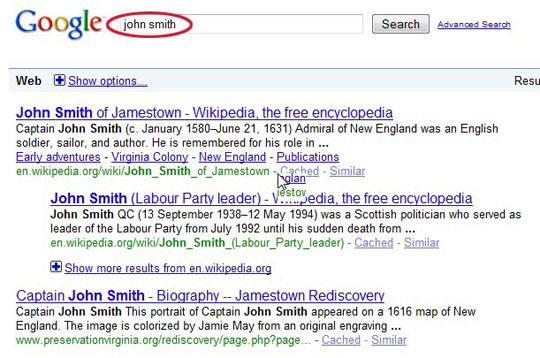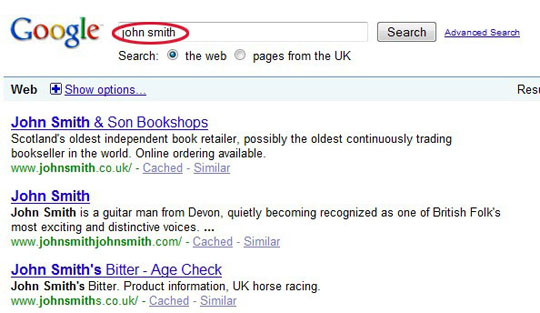To prove how different the search results can vary depending on which Google country search engine is used, try typing in a common name like [john smith] in two different Google country search sites and then compare the results, as shown below.
This simple but subtle test makes it is easy to see how you can significantly increase your chance of success in finding your ancestors by using the correct Google country search engine.

Now see what happens when you type the same search term into Google's UK search engine, which has a bias towards UK results.

The results between the two Google search engines are dramatically different. It is critical that genealogists become aware of this bias and take advantage of it when looking for their ancestors.
Even if you don't want to be using different Google search engines, you need to be aware of this country bias in the search results.
Incidentally, this tip is never mentioned in other genealogy guides or in Google’s official help guides. Google does not want people in (say) Australia routinely using Google’s UK website because Google optimizes their global traffic at the country level. Why does Google do this?

Let's look at this example from Google’s perspective. They have to take the query generated in Australia and provide a bridge from their Australian server to their UK server. Then they have to send the request to their UK server. Once it gets to the UK server, Google performs the search and then sends it back across the world to their Australian server, which then gives the result to the Australian user. Google would much rather someone in Australia send the request to the Australian Google search engine, which does the calculation locally and sends the result back locally in Australia.
We have studied the Google network closely and we have come to the conclusion that Google tends to frown on people using Google search engines on the other side of the world because it slows down search results and ties up traffic on their global network.
For a genealogist searching for an archived genealogy record in a dusty corner of the internet, this is a critical tip that can make all the difference between success and failure.

